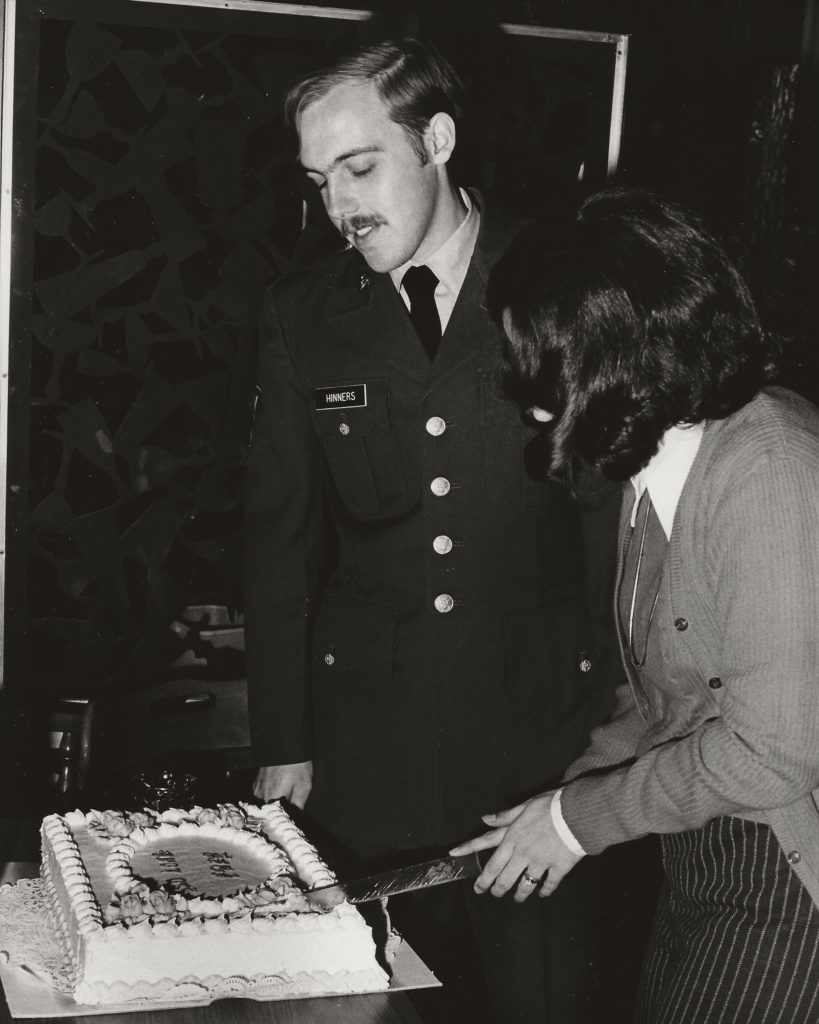I’m calling it. I’m saying I was the last draftee to work at the European Stars and Stripes. The draft ended in December, 1972 and I was snagged in October. I had successfully avoided the draft for four years as a journalism student at University of Nevada, Reno.
After basic and medic training at Fort Sam Houston in San Antonio, I was assigned to an infantry unit in Aschaffenburg, Germany. Not interested in medic work, I started a unit newspaper almost as soon as I got there. I was surprised that “Stars and Stripes” was being published. I thought it just showed up for major events like WWI and WWII. A public information officer at Third Infantry Brigade said with my background I should apply to the paper.
That was all I needed to hear. I took the short train ride from “A-burg” to Darmstadt for an interview with Mert Proctor. I let him know about my degree and part-time work with AP and UPI, and he said he would love to have me on the staff. Next came the hard part. The wheels of Army bureaucracy grind exceedingly slow, especially for someone anxious to leave. It took four months to get the transfer, and then I was assigned to handle “Letters to the Editor.”
The “Letters” department was a shortcut for complaints by the enlisted about everything from European Exchange gas stations, banks, commissaries, living conditions, vendors, commanding officers, assignments, etc. A shortcut for them, not me. It was a huge grind to get letters out via Telex, departmental mail, German post and APO. Even harder was getting people to answer. Spent a good part of the day following up with an unreliable phone system that started out civilian and then tried to connect to military. Riding herd on hundreds of letters a month, mostly complaints, was no easy task.
Usually the letters job went to the newest enlisted who was then replaced by the next newbie. But the pipeline was dry; no more draftees with journalism experience were landing at the paper. After a while, the paper tried out military journalists who had completed Defense Information School or DINFOS. That experiment met with mixed success, but I was only too happy to move up to reporting.
As much as I liked working for Stripes, reporting was so much better. One of my first assignments was to cover Bo Callaway, secretary of the Army, on a visit to Europe. He had a small press conference after his address and afterwards, perhaps catering to Stripes, he took me aside and asked if I had any other questions. Heady stuff for a Spec. 4 draftee.
I covered units in central Germany, including V Corps and 3rd Armored. I was also assigned Berlin and I thought I had the best news beat on the paper. Lots of freedom and lots of responsibility. For some reason I thought the penny shortage occurring at that time deserved extensive coverage and had three articles on that topic.
But I also broke stories that got wide and even international play. A GI in Berlin was arrested for smuggling refugees out of the East. The Army was grappling with the end of the Women’s Army Corps and integration into the rest of the Army. Would they be required to train and use weapons? There were personality pieces and articles on things the Army wanted covered, such as the new military hospital being built in Berlin.
More serious articles I wrote included the last days of an enlisted man who died of a heroin overdose. The European Exchange System liked to talk about how shoplifting cause a rise in prices, but they weren’t forthcoming about a huge theft ring inside their Giessen warehouse. WWII and the American sacrifices were memorialized in a ceremony I covered in the Netherlands on Memorial Day.
It was a great five months in reporting, but my enlistment was ending and I was surprisingly homesick for Reno. I left Stripes with mixed emotions, but I was ready for the next step of my career. I worked for 25 years as a PIO for the State of Nevada and promoted the arts as marketing director, at different times, for four different arts groups. But I will always cherish my days at Stripes and friends I made there: Bob and Kathy Wicker, Chuck Potter, Lin Edral, Bert Lindler, Walt Trott and Greg Thomas.
Photo Caption: Fred Hinners gets a farewell at the Stars and Stripes Press Club in Oct. 1974

